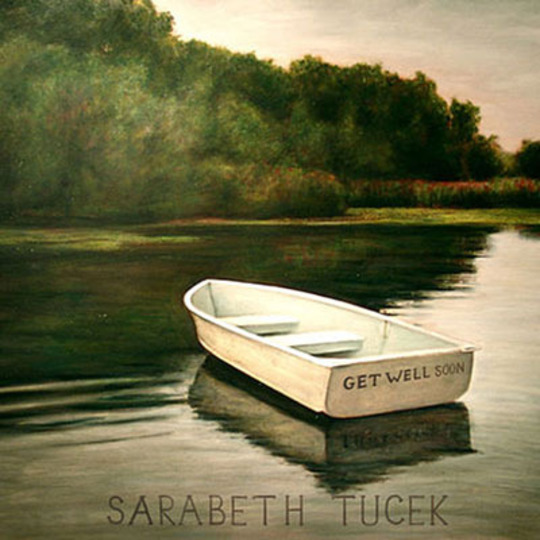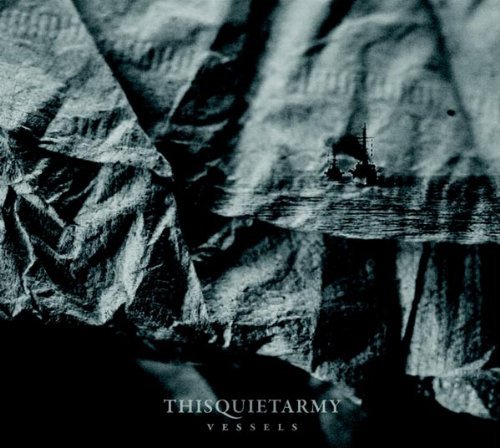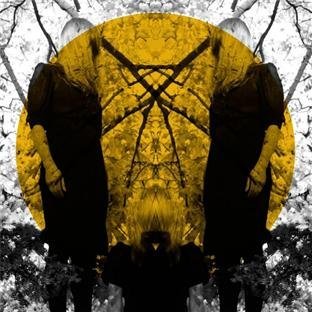If musicians were given prizes for having the most fascinating background, Sarabeth Tucek would surely be a front runner to scoop the jackpot. Born in Miami, her parents specialising in psychiatry and psychology respectively, her nomadic existence has taken her from New York (where she spent the majority of her adolescence) to Los Angeles via Hollywood and currently the Pennsylvania region of America where Get Well Soon was recorded. Add an impressive list of musical collaborations - notably Bill Callahan and The Brian Jonestown Massacre - and it's easy to see why this actress turned singer/songwriter can boast a CV to rival many of her contemporaries both past and present.
Of course none of this matters one iota if the end product isn't good. Her self-titled debut from 2007 and subsequent live shows on this side of the Atlantic suggested otherwise, and having received critical endorsements from the likes of Bob Dylan and Laura Marling, the follow-up has engendered much eager anticipation.
That it would be borne out of the tragic loss of Tucek's father meant Get Well Soon wasn't exactly the planned concept it turned out to be, and yet for a record so ensconced in grief and loss, it serves as a startling, occasionally uneasy narrative of what can only have been a most unpleasant period of its creator's life.
While its predecessor leant on more West Coast orientated influences, from a musical perspective at any rate, Get Well Soon is almost entirely stripped of all electric arrangements, preferring instead to tread a more organic, acoustic path for the majority of its 12 pieces. With long time associates Ethan Johns and Luther Russell again assuming production duties, Get Well Soon was recorded over an intense 15 day period in the basement of a house in the Southampton district of Pennsylvania. What's more, most of the original versions remain unmixed and untouched here, such was the authenticity and outpouring of emotion contained within.
Even the cover artwork offers a poignant reference to her father's passing, an empty rowing boat standing motionless on a lake, its sentiments echoing his final moments before succumbing to a fatal heart attack whilst out rowing on a similar stretch of water. However, Tucek's use of literary references throughout Get Well Soon further illustrate the record as being far and beyond a personally documented tribute. Take the opening 'The Wound And The Bow', based on the works of Edmund Wilson where Tucek discovered Sophocles' mythical Philoctetes. Just under two minutes in total, 'The Wound...'s acoustic lament coupled with Tucek's haunting vocal introduces the record in dramatic fashion.
On 'Wooden', Tucek's voice takes on the aspect of Karen Carpenter at her most angelic, its narrative reading like a scrapbook of memories before distressingly asking "What's it like for you?" 'A View' meanwhile provides another haunting scenic recollection of faded memories. It's on 'The Fireman', though, where Tucek comes into her own, its heartfelt riposte at its most sensitive as the writer suggests "The fireman saved many a home, but the fireman could not save his own." The spacey and impoverished 'Smile For No One' and sombre 'Things Left Behind' provide the lock tight adhesive that glues both halves of Get Well Soon together, while the desolate 'State I Am In', which features a cameo from close family friend Maria Nicgorski implies Tucek's father is never far from her thoughts.
Both 'At The Bar' and 'Rising' take Get Well Soon into less charted electric territories, the former's piano-centred verse imploring "Whoever told you beautiful things don't die..." to the latter's more uplifting crescendo, Tucek declaring "I am adjusting to the mind" before insisting "I can't wait to see you again", almost celebratory. 'The Doctor', one of the oldest songs on the record and undoubtedly one of the simplest structurally, finds Tucek in a similarly reticent mood ("I dreamed his hand upon my hand") while the heavier, reverb laden 'Exit Ghost', based on Philip Roth's appropriation of Hamlet seeing his father's ghost, mirrors the sound of a gloom paletted death march.
Signing off with the title track, Get Well Soon and its creator's state of mind during the making of this album could perhaps be summed up by her own grief-stricken admission: "I knew I was sad, I'd recognised it was bad, but now looking back, I see my mind it was cracked". Where some records are maybe just too personal for public consumption, it's the uneasy fragility contained within Get Well Soon that renders it such a fascinating experience, highlighting Sarabeth Tucek as one of the most candid songwriters of her generation.
-
8Dom Gourlay's Score






















